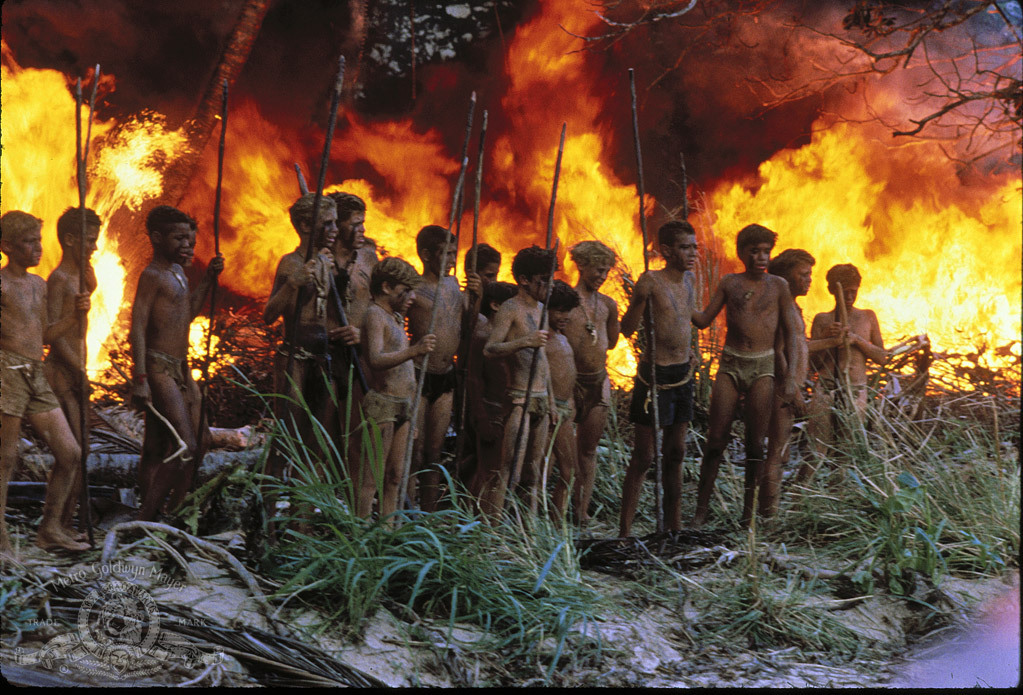
“The thing is – fear can’t hurt you any more than a dream.” – William Golding, Lord of the Flies
In times of fear, crisis and chaos, we instinctively turn to our leaders. What we are seeking are answers, a smart analysis of the facts that helps leaders direct us to the “right” choice. Recent research conducted by Harvard Business Review shows that judgment “is the core of exemplary leadership”. Yet, in the literary classic, Lord of the Flies, Willian Golding presents the dichotomy of human judgment , the conflict we humans experience with living by the rules of society, in peace and in collective harmony, or crumbling into social Darwinism, survival of the fittest and natural selection. Lack of survival becomes the fear.
Social Darwinism
Social Darwinism can explain our plundered store shelves, the herd immunity policies, and the desire to abandon the “shelter-in-place” mandate in order to jump start our economy, therefore, sacrificing society’s most vulnerable so the rest of us can go back to work and secure the stock market’s upward movement. Fear of want can make us greedy. It’s interesting to note that during the “Gilded Age” of the late 1800s, the concept of Social Darwinism became easily adapted into upper class Western society, a trend which believed social Darwinism to be a laissez-faire approach toward capitalism, immigration, the public’s health and well-being, as well as many other social challenges of the day.
Peace and Harmony
Back to the classic novel, the protagonist in Golding’s Lord of the Flies, Ralph, assumes leadership, butstruggles to keep peace and harmony while stranded on a deserted island. He and his supporters attempt to establish democracy through rules and assigned roles . Disorder and disruption surface when their signal fire extinguishes, just as a potential rescue ship passes the island. The boys responsible for the fire abandon their posts and decide to join another groups’ hunt. The two groups quickly become enemy tribes, and throughout the rest of the book, the boys’ behavior becomes ever more violent and vicious. Fear of one another runs rampant through the two camps. The conflict between social order and social Darwinism, survival of the fittest, destroyed the harmony and collaboration on the island. The essential needs for staying alive, cooperation and collaboration were ruined. The strongest leader, the leader of the hunt, Jack, set the tone, transforming all the boys into near savages.
Equitable Access
Without strict guidelines for social order and leadership that protects us, we easily begin to metamorphize into people we hardly recognize. Our baser nature emerges. And it feels so natural, so easy. Who’s watching? Who’s going to stop us? Equitable access to society’s essential needs lessens by whomever gets into the grocery store first. We want to ensure that we don’t run out, everyone else can fair for themselves. Shopping hours for the elderly are ignored, lines of people of all ages clog entrances, leaving many elderly standing out in the early morning cold. Crowds appear on the beach, in parks and trails. Spreading the virus appears to be of no concern. Maybe it’s all due to the disinhibition of social media that has made us less considerate and caring. Maybe human nature’s darker side emerges in a crisis. Is it our karma? According to the International Journal of Forensic Mental Health, a survey of financial leaders discovered that they scored high on antisocial traits and lower than average in emotional intelligence. These are people under constant stress, willing to do whatever it takes to come out on top.
Judgment
We’ve learned through this pandemic that many bad judgment calls were bound to happen, simply because important options, and the risk of their potential consequences, were never given enough serious thought. The leader’s team needs to be able to present the full range of options with open debates on the best way forward. When the leader relies heavily on his/her own instinct alone, judgment is colored, important facts are ignored, and society can only rely on best guesses. Can we be governed by speculation, conjecture, feeling? Or do we follow our better judgment, our more noble nature? Who’s watching our signal fire? Who’s calming our fears? “Leaders need many good qualities but underlying them all is good judgment.” Harvard Business Review Now, who can argue with that?
Connect with Mary mary@encoreexecutivecoaching.com www.encoreexecutivecoaching.com 401-742-1965


